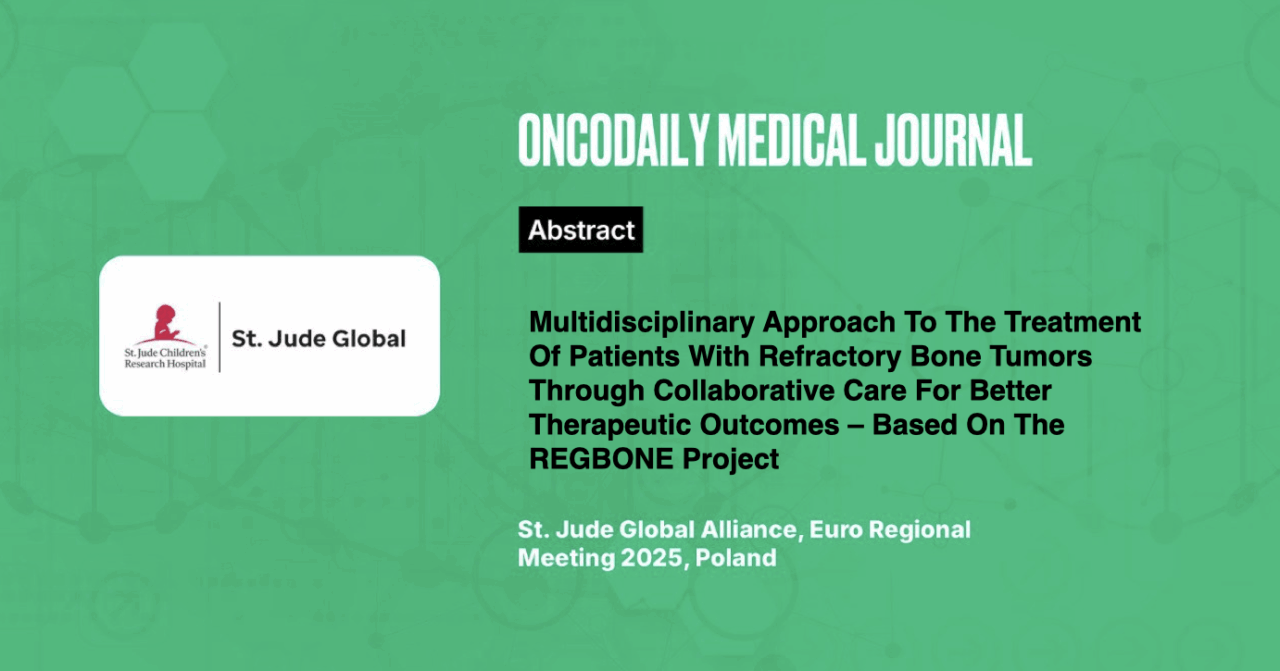Multidisciplinary Approach To The Treatment Of Patients With Refractory Bone Tumors Through Collaborative Care For Better Therapeutic Outcomes – Based On The REGBONE Project
Abstract
Introduction: Clinical trials and interdisciplinary cooperation are the basis of effective cancer treatment. They enable the development of more effective therapies and comprehensive care for patients (pts), significantly affecting their prognosis and quality of life. Patients with metastatic, progressive, or recurrent bone cancers have a dismal outcome. Based on the above data, we created the REGBONE project, where complex molecular tests were implemented, and regorafenib was proposed as a salvage regimen added to standard procedures.
Methodology: Between April 2022 and January 2025, 30 patients with refractory bone cancers were included in the project. Twenty-five patients received additional regorafenib (eight patients switched from the control to the experimental arm due to progression). All patients underwent standard tumor imaging and laboratory evaluation and received standard treatment. All toxicities were documented.
Results: At the start of regorafenib treatment, the median age was 16.0 years, and 17 patients were male. A total of 105 cycles of regorafenib were administered. Thirty-eight surgeries were performed during regorafenib treatment. Nine patients received radiation therapy. There were no additional complications associated with regorafenib treatment, and no serious toxicities were reported. Two patients experienced a grade 4 CTCAE skin reaction, one patient developed hypertension, and two patients had hypothyroidism (grade 2 CTCAE).
Molecular testing revealed mutations in nine patients, leading to treatment modifications. Twenty-three patients are alive (76%), and seven patients are still undergoing treatment. Among the 18 patients treated only at IMID, 16.7% died, while 40% of the 10 patients who started treatment at another center died, emphasizing the need for centralization and interdisciplinary cooperation at every stage of treatment.
Conclusion: Regorafenib is well-tolerated in young patients with refractory bone cancers. Personalized treatment benefits children with acceptable toxicities. Centralization and interdisciplinary cooperation are key to improving treatment outcomes for refractory bone cancer.





